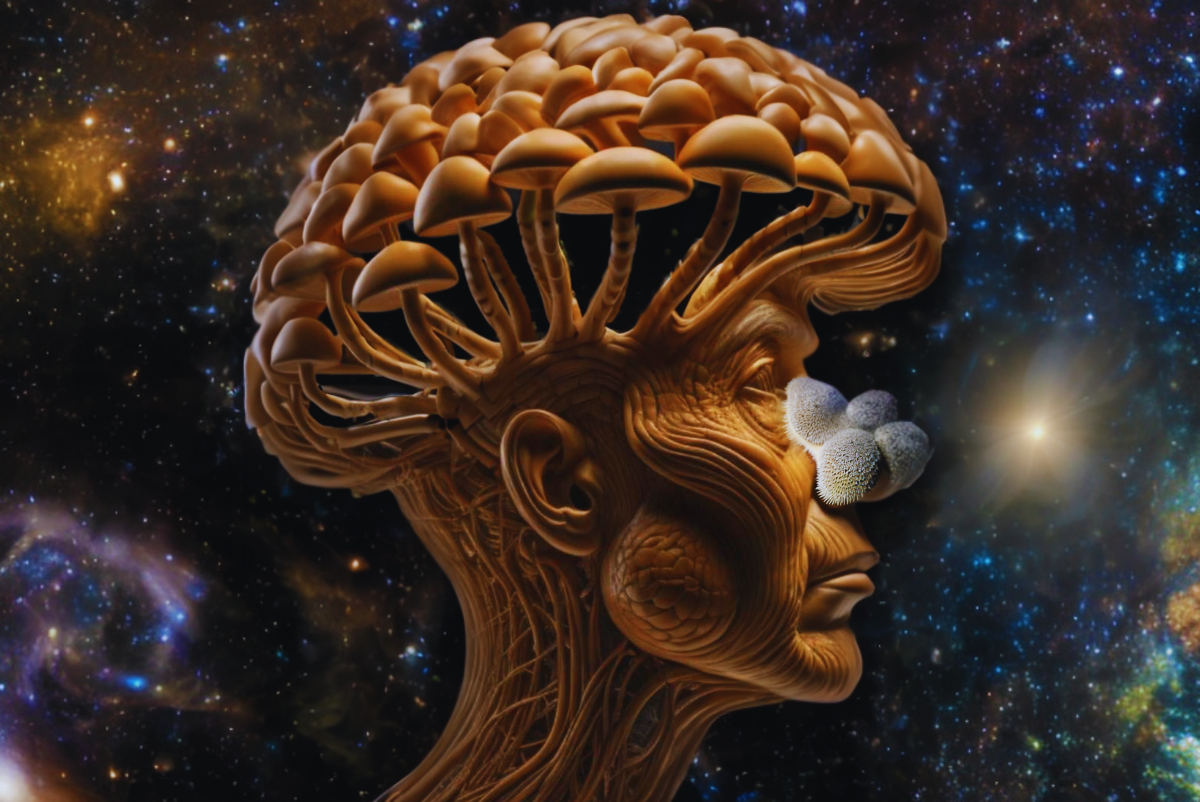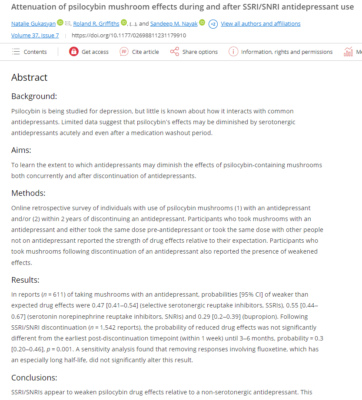
As psilocybin gains prominence in treating affective disorders like treatment-resistant depression and major depressive disorder, and advanced clinical trials aim to prove that the active ingredient found in magic mushrooms may potentially be a better option than traditional antidepressant treatments, researchers are beginning to uncover how the drug interacts with conventional antidepressants.
So far, studies have established that SSRIs such as escitalopram can be used safely with psilocybin to treat depression, suggesting that patients may not need to stop SSRI treatments before undergoing psilocybin-assisted therapy.
However, new research suggests that although it may be relatively safe to use serotonergic antidepressants in pre-treatment time for patients with psychiatric disorders, SSRIs and SNRIs may diminish psilocybin’s effects, and the dampening effect can be observed for up to 3 months after stopping the antidepressant medication.

In the paper titled Attenuation of psilocybin mushroom effects during and after SSRI/SNRI antidepressant use, researchers including Natalie Gukasyan, Rolan R. Griffiths and Sandeep M. Nayak aimed to determine the extent to which antidepressants may decrease the effects of psilocybin both when taken alongside antidepressants and after discontinuing their use.
To gather data, they conducted an online retrospective survey involving 2153 individuals who had taken psilocybin mushrooms while also using an antidepressant, and individuals who had used psilocybin within two years after discontinuing their antidepressants.
The participants who took psilocybin mushrooms with an antidepressant were asked to report on the strength of psilocybin’s effects relative to their expectations. They were asked to indicate whether they took the same dose before taking an antidepressant or took the same dose with people who did not take antidepressants. Participants who had discontinued their antidepressant treatments before taking mushrooms were also asked to report on the strength of psilocybin effects.
The group of 611 individuals who had taken magic mushrooms alongside an antidepressant reported weaker than expected psilocybin effects. The participants indicated having taken selective serotonergic reuptake inhibitors (SSRIs), serotonin norepinephrine reuptake inhibitors (SNRIs), or bupropion.
The group of 1,542 participants who had ceased their SSRI/ SNRI medication also reported weakened effects. What’s interesting is that the probability of weakened effects was not significantly different between the individuals who had discontinued antidepressants a week before taking mushrooms and those who had stopped their treatment 3- 6 months prior to their psilocybin experience. Even after the researchers removed the responses of those who had taken fluoxetine, an antidepressant which takes longer to be cleared of a patient’s system, that did not significantly alter the results.
All in all, the study demonstrates that SNRI/SSRI antidepressants reduce the effects of psilocybin compared to non-serotonergic antidepressants, and that individuals who have stopped antidepressants may experience weaker effects as long as 3 months after discontinuing their medication.
Final thoughts
The results are not that surprising when taking into consideration that psilocybin is a partial agonist at the 5-HT2A receptor, preventing the binding of serotonin to the occupied receptors, and that SSRIs decrease the number of serotonin receptors in one’s brain by preventing synaptic cells from reabsorbing serotonin once released. In other words, if SSRIs decrease the number of serotonin receptors in the brain and psilocybin binds to those receptors, it is reasonable to conclude that the strength of psychedelic effects will be reduced. What does that mean for participants in psilocybin clinical trials who are currently taking antidepressants or have stopped their use for up to 3 months? Would administering a larger dose of psilocybin lead to better results and longer remission rates? Would that help in proving that psilocybin is even more effective than traditional treatments? More research needs to be made to find the answers to these questions.





